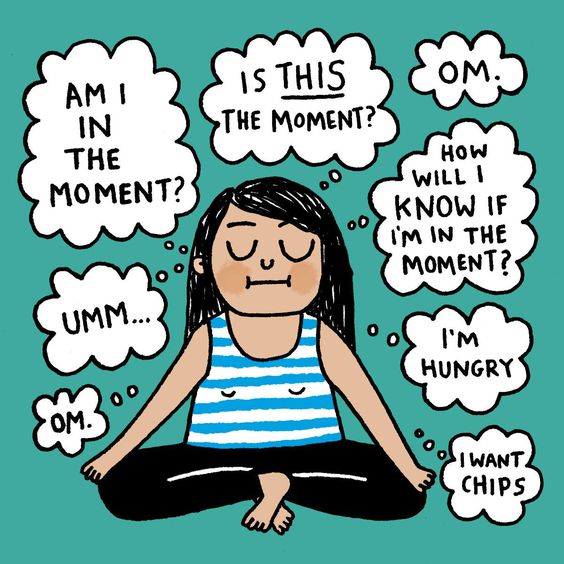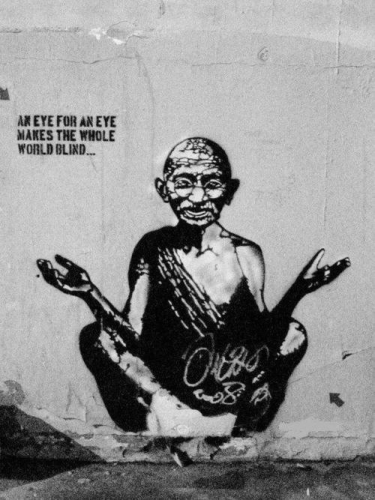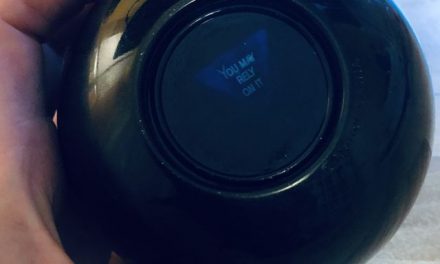By Dana Gornall
I need a guru.
The words run through my head like one of those light-up digital signs from the 1980s that flash a sentence or two over and over again. I even found myself typing those words and posting it as a Facebook status one day which brought out a comment or two telling me I was my own guru.
Hardly, I thought. Barely able to decide whether I want a bagel or toast most mornings (assuming I have bagels or bread and have been to the grocery store recently), the idea of being my own guru seems ridiculous.
I’ve seen many cartoons where a guru is depicted on the top of a mountain. A seeker climbs up to the top only to find either that the guru isn’t there anymore or he is there and gives some kind of odd or funny advice. The joke is on the seeker, of course. After scaling the mountain in search of answers, he is met with an empty response and no resolution. It makes me wonder if there ever were gurus who sat on top of mountains. I’m sure the symbolism of climbing great heights in search of an answer is metaphorical enough to be some sort of koan or riddle itself.
Yet, I still sit here wishing I had a guru.
I’ve searched in books and in the lines of songs, in stanzas and meters of poetry, in online chats and conversations with friends. I have scoured through self help articles and typed my questions into Google. I’ve sat, eyes closed or eyes open and unfocused staring into nothing, watching my thoughts bounce back and forth like a ping pong ball through my mind. But I still can’t seem to find answers.
Seeing yourself go through the motions of a life off track can be unnerving.
I’m sure a yogi of the past or the Buddha would tell me that my thoughts are unguarded. I’m sure I would be told to find control over my mind or at least attempt to gain some control. But how can a flighty single mom that can’t decide whether she wants toast or a bagel in the morning ever corral any of her thoughts?
According to the Yoga Sutras of Patanjali there are only five kinds of thoughts:
- Pramana/right
- Viparyaya/wrong
- Vikalpa/imagined
- Nidra/deep sleep
- Smriti/memory
Supposedly, both in Buddhism and in Yoga, the observation of these thoughts lead to better control and/or mastery of thinking. When we allow our memories or our own projections funnel reality into a prism and make it something bent and askew, we shape our own reactions and actions into something else, as well.
And this causes suffering. We, in a sense, sabotage ourselves. It’s like the plot twist of a very bad Lifetime movie.
So maybe it is true that we are our own gurus. Maybe there is some reality in those cartoons in which a seeker is climbing a mountain only to be left to finding his own resolution in the end. Maybe it’s true that we cannot find answers in others or other things but only in ourselves.
That doesn’t make me feel any better when I’m in the process of scaling this mountain though.
I need a guru, I think. I need someone that I can go to to give me a direction to take.
I need something like a Betty Crocker cookbook to point out the steps one by one or perhaps a manual that can lay out Point A to Point B and maybe even a Point C—something to refer to when I’m unsure and a little lost. Except the joke always seems to fall back on me after scaling yet another mountain looking for yet another answer.
Deciding to fry up a potato for breakfast I find myself pacing in the kitchen and wander into the living room. Kneeling down, I scan the spines of so many books. I pull out Light on Life by BKS Iyengar, and flip open to a page:
“We feel happy when we are directing our own lives because we are experiencing a growing freedom. We are exploring the possibilities of life on earth through the release and realization of our own potential. Freedom is the innermost desire of all our hearts.”
Back down the mountain I climb again.
Photo: (source)
Comments
- The Power of Choice When Things Feel Out of Your Control (and What the Buddha Got Right About It) - July 21, 2023
- Why That Productivity App Won’t Fix Your Overwhelmed Mind - July 11, 2023
- Chasing Sunsets: A Story about a Dog - January 19, 2023





